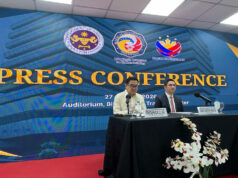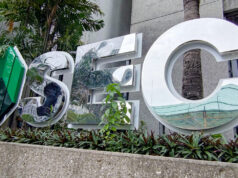DTI tightens rules on cement product labels
IMPORTED CEMENT products will no longer be allowed to carry “Product of the Philippines” labels after the Department of Trade and Industry (DTI) revises its guidelines.
Under previous rules, local companies were able to carry this label for imported cement products that are bagged in the country.
The Cement Manufacturers Association of the Philippines earlier this year asked the government to investigate the origin of Philcement Corp. products that have been labeled as locally made.
The industry group said that consumers choosing between products must be presented with accurate information, noting the government’s local manufacturing campaign to boost employment.
Philcement, however, maintained that it has been following government labeling rules, noting that an investigation by the DTI found that the labels of PhilCement and its brand Union Cement Super comply with their standards.
DTI in a press release on Wednesday said that it will be issuing a memorandum circular after its Bureau of Philippine Standards reviewed its policy on cement products.
The bureau had been issuing separate licenses for manufacturing and bagging facilities, supplied for each plant or site. But DTI said that there was “some confusion” on product markings, because an earlier order did not require bagging facilities to indicate the country of manufacture in its labels.
After the memorandum is issued, the bureau will monitor cement bagging facilities for compliance. Cement products bagged in licensed facilities must have: the name and address of the manufacturers, the country of manufacture, and the name and address of the bagging facility.
The facilities will be ordered to stop all printing for imported cement bags with “Product of the Philippines” labels.
“We encourage and support investments in additional cement processing facilities, but we will also not waiver in our pursuit to ensure level playing fields, both for locally manufactured and imported products,” Trade Secretary Ramon M. Lopez said.
“Accurate information through the products’ labels should be provided to the consumers for them to make informed decisions in their choices of consumer products.”
Philcement Chief Executive Officer Eduardo Sahagun, in a phone interview on Oct. 9, said other companies in various industries have been labeling their imported products as locally made, noting that they and Philcement follow DTI rules.
“Should the rule be changed, we will follow the rule,” he said.
DTI has not said when it will release the new memorandum. — Jenina P. Ibañez



